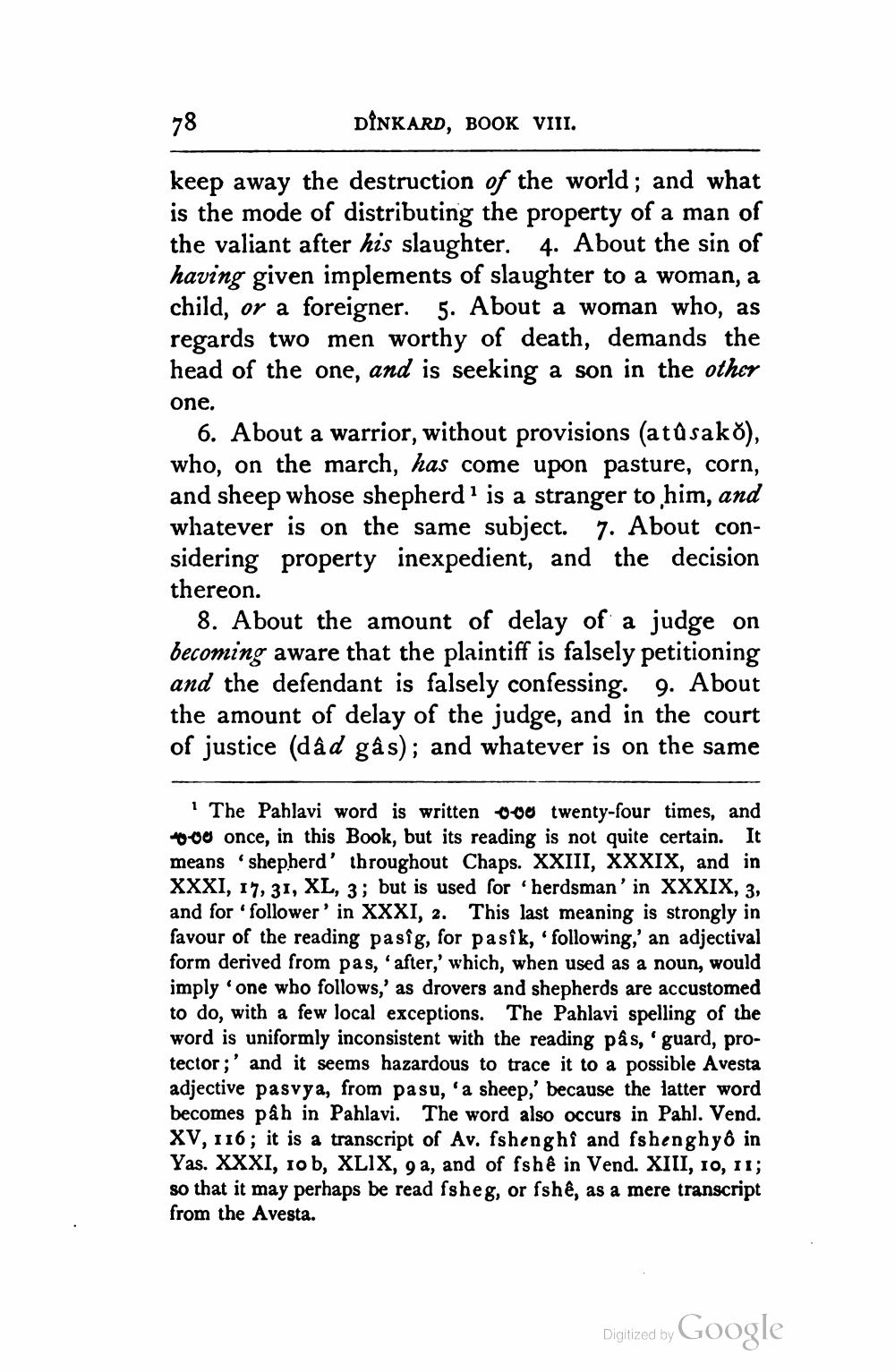________________
78
DÎNKARD, BOOK VIII.
keep away the destruction of the world; and what is the mode of distributing the property of a man of the valiant after his slaughter. 4. About the sin of having given implements of slaughter to a woman, a child, or a foreigner. 5. About a woman who, as regards two men worthy of death, demands the head of the one, and is seeking a son in the other one.
6. About a warrior, without provisions (atû sako), who, on the march, has come upon pasture, corn, and sheep whose shepherd 1 is a stranger to him, and whatever is on the same subject. 7. About considering property inexpedient, and the decision thereon.
8. About the amount of delay of a judge on becoming aware that the plaintiff is falsely petitioning and the defendant is falsely confessing. 9. About the amount of delay of the judge, and in the court of justice (dâd gâs); and whatever is on the same
1 The Pahlavi word is written ooo twenty-four times, and 4000 once, in this Book, but its reading is not quite certain. It means shepherd' throughout Chaps. XXIII, XXXIX, and in XXXI, 17, 31, XL, 3; but is used for herdsman'in XXXIX, 3, and for 'follower'in XXXI, 2. This last meaning is strongly in favour of the reading pasig, for pasik, 'following,' an adjectival form derived from pas, after,' which, when used as a noun, would imply one who follows,' as drovers and shepherds are accustomed to do, with a few local exceptions. The Pahlavi spelling of the word is uniformly inconsistent with the reading pås, guard, protector;' and it seems hazardous to trace it to a possible Avesta adjective pasvya, from pasu, 'a sheep,' because the latter word becomes pâh in Pahlavi. The word also occurs in Pahl. Vend. XV, 116; it is a transcript of Av, fshenghĩ and fshenghyô in Yas. XXXI, 10 b, XLIX, 9 a, and of fshê in Vend. XIII, 10, 11; so that it may perhaps be read fsheg, or fshê, as a mere transcript from the Avesta.
Digitized by Google




